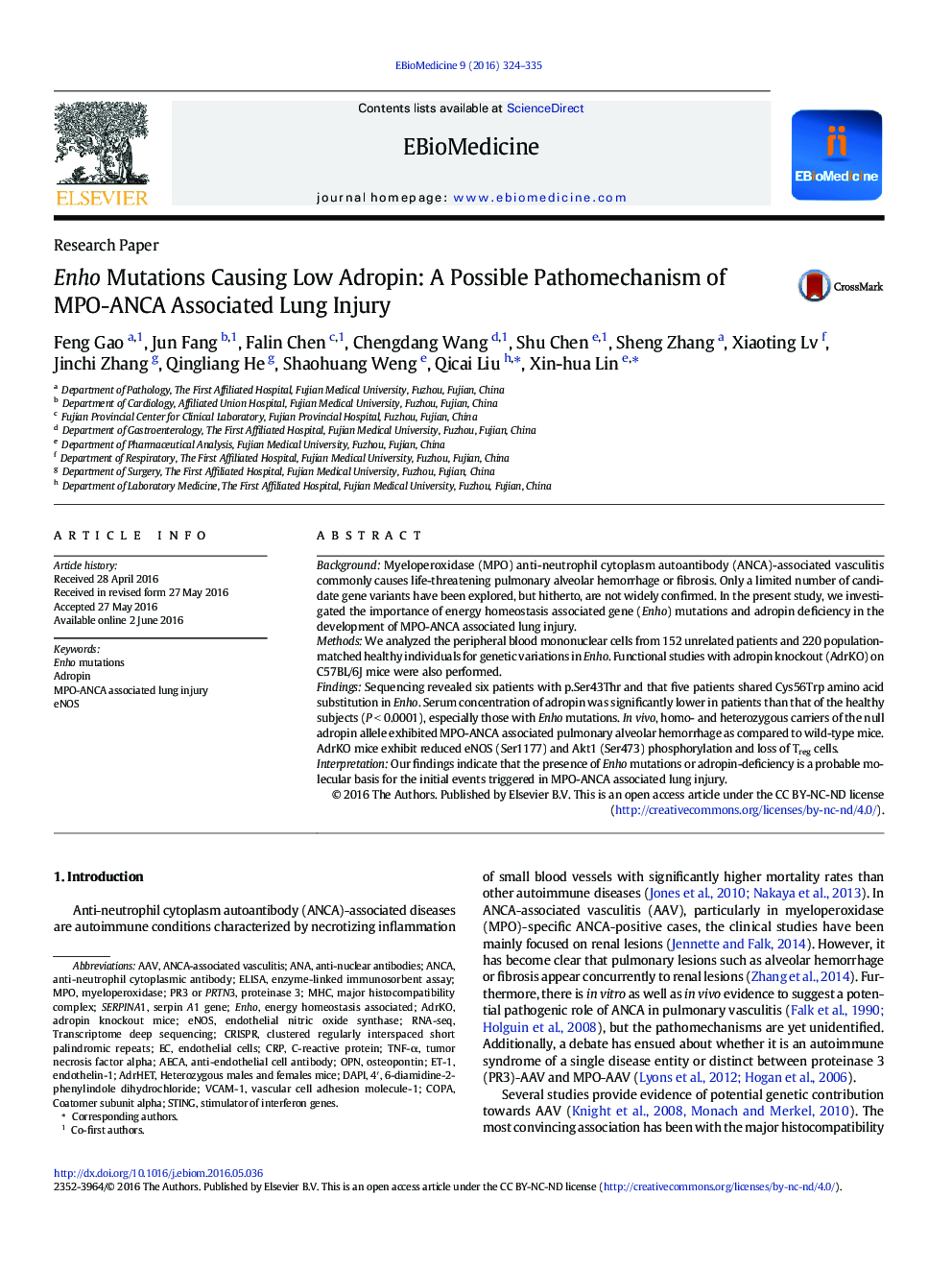| Article ID | Journal | Published Year | Pages | File Type |
|---|---|---|---|---|
| 2120728 | EBioMedicine | 2016 | 12 Pages |
•Enho mutations result in adropin deficiency.•Adropin deficiency cause MPO-ANCA-related pulmonary hemorrhage or lung fibrosis.•Adropin knockout (AdrKO) mice exhibit reduced eNOS (Ser1177) and Akt1 (Ser473) phosphorylation and loss of Treg cells in lung tissue.•PR3-AAV and MPO-AAV may be the two independent disease subtypes and have their different susceptibility genes.
BackgroundMyeloperoxidase (MPO) anti-neutrophil cytoplasm autoantibody (ANCA)-associated vasculitis commonly causes life-threatening pulmonary alveolar hemorrhage or fibrosis. Only a limited number of candidate gene variants have been explored, but hitherto, are not widely confirmed. In the present study, we investigated the importance of energy homeostasis associated gene (Enho) mutations and adropin deficiency in the development of MPO-ANCA associated lung injury.MethodsWe analyzed the peripheral blood mononuclear cells from 152 unrelated patients and 220 population-matched healthy individuals for genetic variations in Enho. Functional studies with adropin knockout (AdrKO) on C57BL/6J mice were also performed.FindingsSequencing revealed six patients with p.Ser43Thr and that five patients shared Cys56Trp amino acid substitution in Enho. Serum concentration of adropin was significantly lower in patients than that of the healthy subjects (P < 0.0001), especially those with Enho mutations. In vivo, homo- and heterozygous carriers of the null adropin allele exhibited MPO-ANCA associated pulmonary alveolar hemorrhage as compared to wild-type mice. AdrKO mice exhibit reduced eNOS (Ser1177) and Akt1 (Ser473) phosphorylation and loss of Treg cells.InterpretationOur findings indicate that the presence of Enho mutations or adropin-deficiency is a probable molecular basis for the initial events triggered in MPO-ANCA associated lung injury.
Graphical AbstractAdropin-deficiency causes ANCA vasculitis.Adropin-deficiency plays a critical role in activating endothelial cells during neutrophil recruitment and neutrophil-endothelium cell interactions under IL-1 and TNF-α-induced vascular inflammation. Neutrophil extracellular trap (NET) formation, also termed as NETosis, has been linked to develop autoantibodies against endothelial cell, such as VCAM-1. Then, VCAM-1 mediates the adhesion of lymphocytes and monocytes to vascular endothelium.Figure optionsDownload full-size imageDownload as PowerPoint slide
